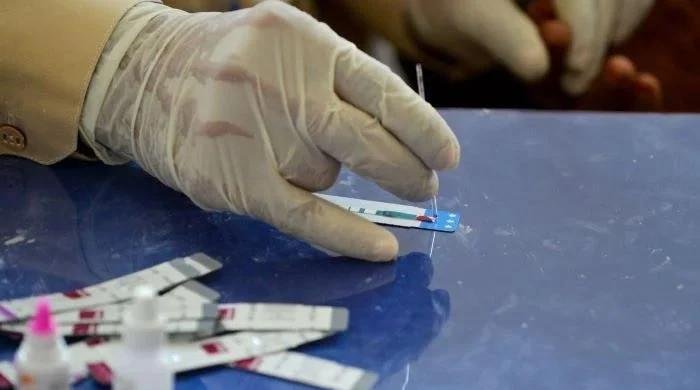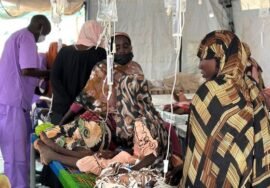
Global Fund cuts aid to Pakistan despite rising HIV, TB, Malaria

ISLAMABAD: In a significant setback to Pakistan’s efforts to combat infectious diseases, the Global Fund to Fight AIDS, Tuberculosis and Malaria has reduced its financial support to the country for the current grant cycle, citing global funding pressures and the need to reprioritise allocations, The News reported.
The cutback comes as Pakistan faces a sharp rise in HIV, tuberculosis (TB), and malaria cases, while its national health programmes continue to grapple with leadership gaps and administrative mismanagement.
According to an official letter sent by the Global Fund to Pakistani authorities, the country’s total allocation under Grant Cycle 7 (GC7) has been reduced from US$250.8 million to US$223.6 million, a decline of over US$27 million.
The funds were originally distributed among key national and international partners implementing prevention, diagnosis and treatment services in Pakistan.
Among the hardest-hit is the National TB Control Program, whose allocation has dropped from US$145.7 million to US$129.9 million.
The HIV/AIDS component implemented by the National AIDS Control Program and UNDP Pakistan has been reduced by more than US$4 million. Malaria programmes also witnessed funding cuts across various implementing bodies.
The reduction comes amid growing concerns within the Global Fund and Pakistan’s health community that the previous grants were not utilised efficiently or transparently.
Several health officials and donor representatives have expressed dissatisfaction with delays, underperformance, and financial mismanagement that reportedly plagued multiple programmes.
More troubling is the fact that the federal government’s Common Management Unit (CMU) — the national coordination body overseeing HIV, TB, and malaria programmes — is currently without a permanent head. In addition, all three individual disease control programmes are being run without full-time national programme managers.
The Ministry of National Health Services has recently advertised these top-level posts, but experts warn that unless qualified, competent, and honest professionals are appointed through a transparent process, Pakistan’s fight against these deadly diseases will remain dangerously weak.
In the meanwhile, the disease burden continues to grow. According to official estimates, more than 1,200 new HIV cases are being detected each month, with health experts fearing that actual transmissions may exceed 3,000 per month due to underreporting and weak surveillance systems.
Pakistan is currently among the top countries in the Asia-Pacific region experiencing a fast-growing HIV epidemic.
The TB situation is even more alarming as the World Health Organisation estimates that more than 610,000 new TB cases occur in Pakistan annually, making it one of the top five high-burden countries globally.
Pakistan also remains a hotspot for drug-resistant TB. Malaria, long neglected due to its concentration in rural and flood-prone areas, is now surging again, with climate change and poor vector control contributing to localised outbreaks.
The Global Fund’s letter emphasises that its decision to cut Pakistan’s allocation stems from global donor constraints, but also calls on Pakistani authorities to reprioritise and make the best use of the remaining grant money along with domestic resources.
The Country Coordinating Mechanism (CCM), which oversees Global Fund implementation in Pakistan, has been asked to reconvene and finalise revised funding plans by July 14, 2025. Failure to do so will result in automatic implementation of the revised reduced grant structure.
The development has sent ripples through Pakistan’s public health sector, with civil society organisations, programme officials, and international health partners urging immediate corrective action.
“We are not only losing money — we are risking lives,” one senior official associated with HIV programme said on condition of anonymity. “Without capable leadership and proper accountability, we may lose further donor confidence in the future.”
The situation underscores the urgent need for the Ministry of National Health Services to restore credibility and operational capacity in these vital programmes.
With the reduced funding now confirmed, experts warn that Pakistan must act quickly to prevent a surge in preventable deaths and further deterioration in its public health systems.







